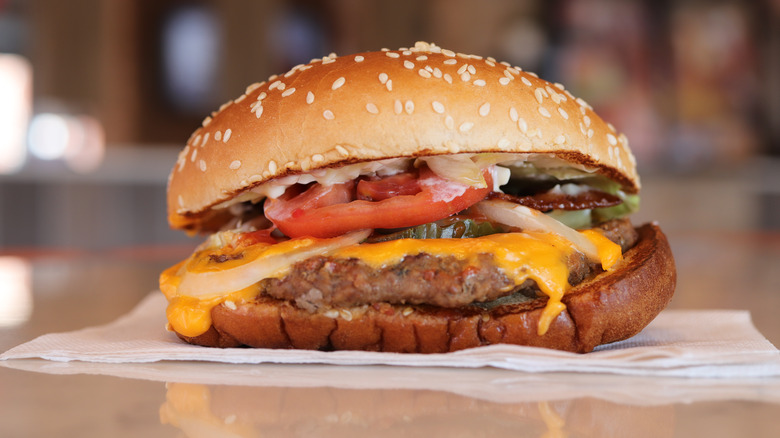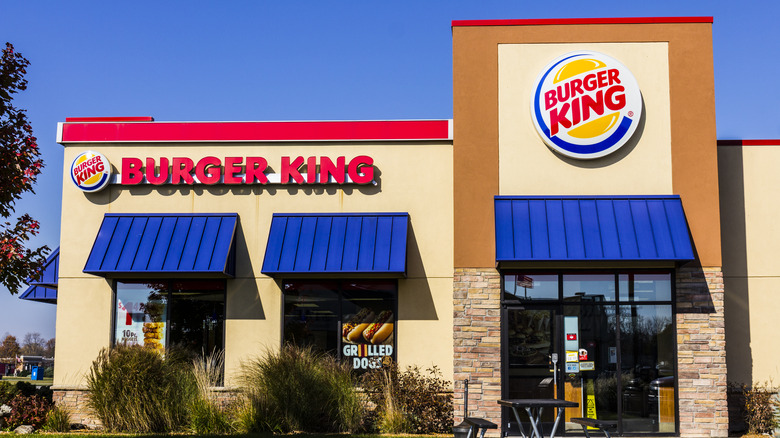Burger King Is Being Sued Over The Size Of Its Whoppers
Florida-based fast-food chain Burger King has come under fire for allegedly exaggerating the size of its menu items in marketing images. Now, Seattle Times reports that four plaintiffs have filed a class-action complaint against the company in hopes of settling the matter in court.
According to Top Class Actions, the lawsuit alleges that Burger King's current marketing images make their burgers appear approximately 35 percent larger than they are. Specifically, their ads depict burgers with oversized patties, which extend beyond the bun. The lawsuit claims that this extra-large patty gives the impression of a burger with 100 percent more meat than it contains.
Plaintiffs say that the fast-food chain began exaggerating the size of its burgers in September 2017. "Although the size of the Whopper increased materially in Burger King's advertisements, the recipe or the amount of beef or ingredients contained in Burger King's Whopper has never changed," said the lawsuit, per Top Class Actions. The plaintiffs claim that, in comparison to the advertisements, Burger King customers are receiving less food — and therefore less value — for their money.
"Burger King's actions are especially concerning now that inflation, food, and meat prices are very high and many consumers, especially lower-income consumers, are struggling financially," says the lawsuit. "Burger King's promise to consumers of a large portion of food with their purchase is also causing consumers to come to, or order from, Burger King and make purchases that they would not have otherwise made."
This isn't the first time Burger King has faced legal woes
According to Reuters, Burger King was sued in 2020 for alleged deception regarding the chain's Impossible Whopper. Specifically, plaintiffs claimed that the chain misled its vegetarian and vegan customers by cooking the plant-based Impossible Whopper patties on the same surface as the meat patties.
The lawsuit, however, was dismissed by U.S. District Judge Raag Singhal, who said that the plaintiffs did not ask about the chain's cooking method at the time of purchase. Moreover, Burger King never advertised that their plant-based patties would be cooked on a separate surface — meaning that there was no deception involved.
Ten years earlier, in 2010, the United Kingdom's Advertising Standards Authority (ASA) took issue with a television commercial for Burger King's TenderCrisp Chicken Sandwich, reported Food & Wine. Their investigation found that the ads depicted a sandwich significantly larger than what was actually sold at the restaurants. As such, the agency banned the commercial from further airing in the United Kingdom.

